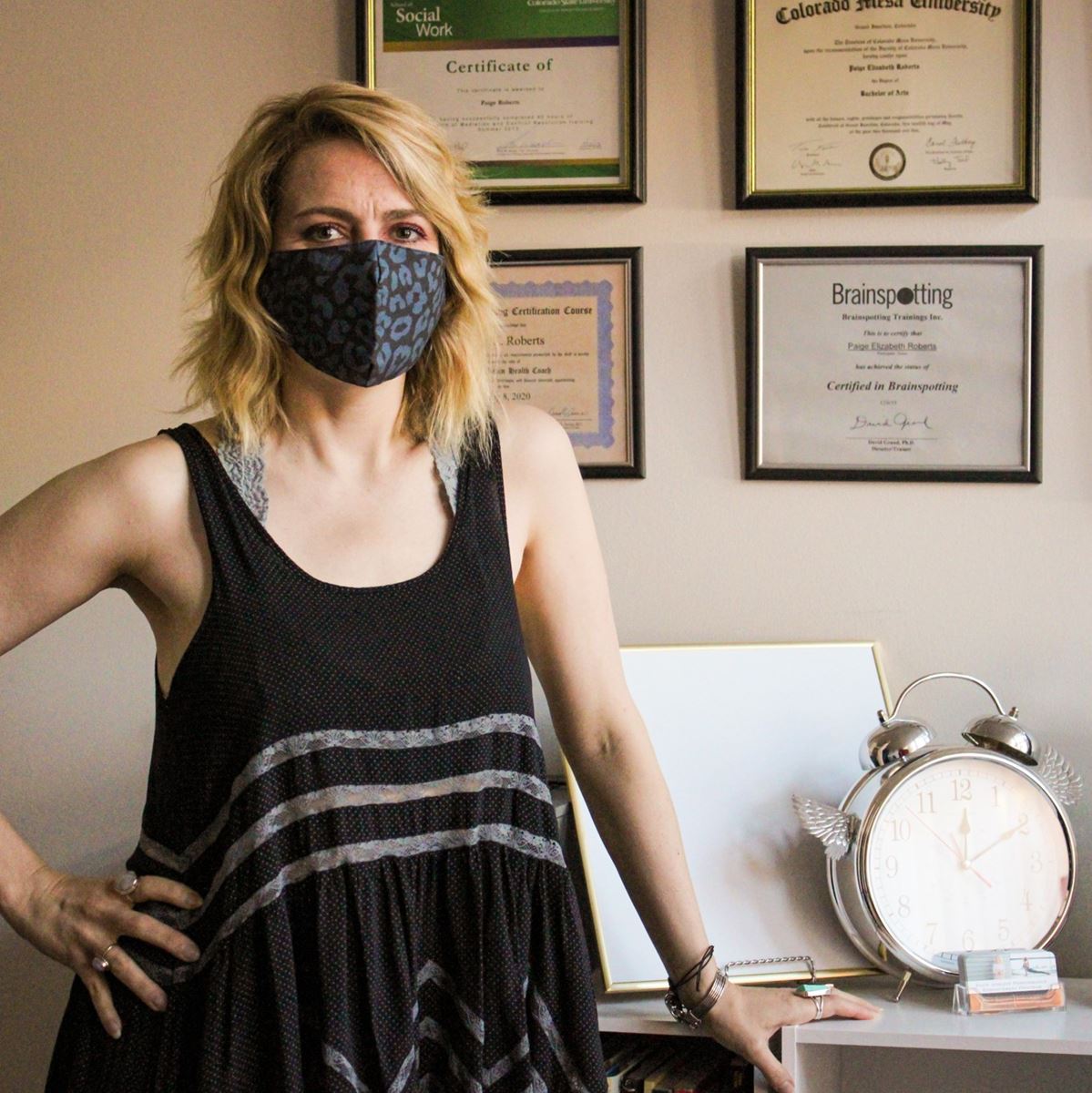Food for Thought: Train Your Brain to Maintain Your Body
October 14, 2020 - by Brooke Wilson
Food for Thought: Train Your Brain to Maintain Your Body
Paige Roberts, a licensed clinical social worker, has dedicated the bulk of her career to studying the human brain and nervous system - and how they can uplift each other to coexist in harmony. And that’s exactly what she’ll teach you through her practice: Paige Roberts Performance Neurotraining.
 Anyone who browses her website or social media pages may be a little confused at first, Roberts admits, noting that she steers away from traditional therapy jargon and tropes like, “Are you depressed?” that perpetuate stereotypical notions about mental health. But that’s what she offers: a way for clients to address the stresses and challenges of daily life, especially now. She uses her unique approach to help clients gain perspective and train their brain. For that reason, Paige named her practice Performance Neuro Training, in an effort to destigmatize mental care and underscore how everyone can benefit from holistic conditioning and therapy that addresses mind and body equally.
Anyone who browses her website or social media pages may be a little confused at first, Roberts admits, noting that she steers away from traditional therapy jargon and tropes like, “Are you depressed?” that perpetuate stereotypical notions about mental health. But that’s what she offers: a way for clients to address the stresses and challenges of daily life, especially now. She uses her unique approach to help clients gain perspective and train their brain. For that reason, Paige named her practice Performance Neuro Training, in an effort to destigmatize mental care and underscore how everyone can benefit from holistic conditioning and therapy that addresses mind and body equally.
“It’s just looking at it a little more scientifically, as opposed to the labels and stigma that imply, ‘I am this thing forever’ with a permanent verbal stamp,” Roberts said.
Her services include one-on-one lessons with clients to learn strategies for “untraining” stresses out of our nervous system while strengthening positive processes within the system, Roberts said. Training the brain and nervous system helps us perform optimally and be less prone to certain mental health symptoms.
“Because all of us have endured environmental or physical or mental trauma, that's all there is to it,” Roberts explains.
Her hybrid office-living room wall, lined with diplomas, certificates and awards, provides a snapshot of all the techniques and research Paige has accumulated throughout her career. She has effectively tailored her life - her sleep schedule, diet, exercise, work habits - to optimize her mental health and happiness - something we can all aspire to achieve. She traded coffee for other natural sources of caffeine, for example, citing studies on its negative impacts as assuredly as one might comment on the weather. For Paige, it goes further than following common sense - it’s about the certainty and comfort that science provides.
While serving in a hospital and earning her graduate degree in exercise physiology at Colorado State University, Roberts said she reached a moment of clarity that pivoted the nature and motivation of her work.
“I started to realize that it wasn't that people didn't know the avenues to be healthy, physically. It was more about the psychology of our behavior and that was probably more important to shift in people to increase their overall health and wellness,” Roberts said.
Among her diverse clientele, there are three general target populations that Roberts caters to: athletes, patients who experience chronic illness or have endured trauma, and individuals seeking overall health improvements and functionality to fire on all cylinders.
“Those clients come in once or twice a month for ‘tune-ups’ to decrease stress and keep themselves on track with reaching their personal goals,” Paige said.
Contrary to some prevailing misconceptions, Paige emphasizes that therapy is not a commitment for life. Instead, she says it should be treated as a process people cycle through to reboot or reframe negative stressors, grief or pain as it crops up throughout your life.
As the world grapples with an onslaught of mental strain stirred up by the pandemic, her philosophy in marrying neuroscience and lifestyle coaching has proven increasingly popular with anyone looking to harness more positivity and productivity.
 Within the burgeoning information-tech population around the Pacific Northwest, Roberts noted that a number are especially sleepless in Seattle - no pun intended. According to Roberts, exposure to electronic devices like cell phones can disrupt your sleep pattern and lead to more serious issues caused by prolonged sleeplessness. To counter these pervasive problems, Roberts recommends shutting off your phone at night or storing your device separately from where you sleep.
Within the burgeoning information-tech population around the Pacific Northwest, Roberts noted that a number are especially sleepless in Seattle - no pun intended. According to Roberts, exposure to electronic devices like cell phones can disrupt your sleep pattern and lead to more serious issues caused by prolonged sleeplessness. To counter these pervasive problems, Roberts recommends shutting off your phone at night or storing your device separately from where you sleep.
Additionally, Roberts has found that the compulsive, hyperactive work ethic found often in the modern workplace has posed a cultural challenge for her to reinforce positive habits and promote healthier routines.
“You know, it's like trying to pull away some of the programmers from their desk after 80 hours a week, it's difficult,” Roberts explained.
However, despite the higher tendency for chronic stress and burnout among business professionals young and old, that competitive drive and commitment to achievement is part of what Roberts found compelling about the greater Bellevue community.
“I think I'm really drawn to the driven individuals that are trying to do something that no one else has ever done before,” Roberts said. “That's kind of the whole energy of this area. It’s in the individuals who take pride in themselves and, moving out here four years ago, it was refreshing to see individuals that were very dedicated and serious about their work, their mission, their purpose...” Roberts said.
Curious for more? Roberts offers free 30 minute consultations and works with clients both locally in the Seattle region and globally via telehealth distance sessions. Find out more on her website.
This blog is part of the Heart of Bellevue: our campaign to showcase local businesses while connecting you with stories of activity, creativity and recovery. Find out about our campaign and explore more of what’s happening around Downtown.





